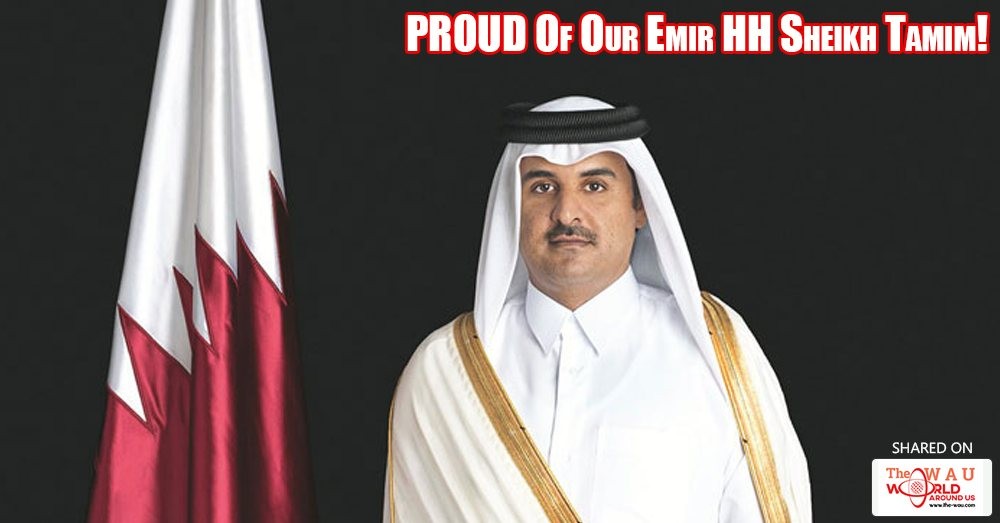Two weeks back Qatar became the target of a concerted and well-co-ordinated blockade spearheaded by Saudi Arabia and supported by Bahrain, UAE, Egypt, Yemen and other countries. The countries have accused Qatar of supporting extremism, but have failed to produce any documentary evidence to support these allegations. Qatar has continuously maintained that these allegations are unfounded and baseless.
Qatar has adopted a diplomatic route to arrive at a resolution of the ongoing crisis in the region and at the same time taken some well-executed measures, which have prevented the country’s population from panicking and assured a semblance of normalcy within Qatar’s borders.
Economic blockade is generally used as the first approach to express hostility in the region, the purpose of economic blockade is to cut the supply of essentials such as food and medicine of the target country and force it to compromise. Economic blockades are particularly successful in the region as most the countries are dependent on imports to meet their demand for food, medicines, and other essential supplies. However, the Qatari Govt. has handled the crisis beyond the expectations of all the experts and observers of the region, most people expected Qatar to balk and sue for a compromise within a few days, but nothing of that sort has happened, instead Qatar may come out of this crisis even more stronger. It would that Qatar has called the bluff of its big neighbours. Here’s what Qatar did:
Establishing new supply routes:
To make sure that food items and other essential commodities are maintained in enough stock in the country, the Qatari Govt. quickly opened channels of communication with potential partners such as Turkey and Oman. New supply relations were quickly established and supplies started to pour into Qatar from Turkey, Iran, and Oman; the upside being that supplies were cheaper and if consumers are to be believed the products are of better quality as well.
H E Sheikh Mohammed bin Abdulrahman Al Thani, the Foreign Minister of Qatar said, “We can live forever like this”. The honourable Minister pointed it out that only 16% of Qatar’s food imports come from the land border crossing Qatar shares with Saudi Arabia and a redundancy plan to mitigate the effects of the border closing has been put in place.
Buoyed by the establishment of new supply lines, the Minister of Economy and Commerce HE Sheikh Ahmed bin Jassim bin Mohammed al Thani has reiterated that the blockade imposed on Qatar by its Gulf neighbours Saudi Arabia, the UAE and Bahrain has no impact on businesses in the country.
“Trade is running normally and smoothly as before and nothing has changed. We have succeeded in providing better quality goods to consumers at cheaper rates,” the Honourable Minister told Qatar TV in an interview on Sunday.
No effect on exports and investments:
The various aspects of Qatari economy appear to be compartmentalised given the manner in which its exports have remained unaffected by the blockade. Another plausible reason is that there is has be no impact because over 60% of Qatar’s exports are for countries outside the Gulf region. Given the client list of Qatar’s exports, it is very unlikely that the blockade and the vicious campaign launched against Qatar would succeed. The top export destinations of Qatar are Japan ($15.6B), South Korea ($15.4B), India ($10B), China ($5.14B) and Other Asia ($3.79B).
Furthermore, the assets of the Qatar’s sovereign wealth fund estimated to be about $335 billion in worth is a huge cushion that will allow Qatar’s economy to absorb the regional shocks. The UK is Qatar's single largest investment destination, with £35bn in place and another £5bn on its way in the next five years.
Qatar National Bank (QNB), the largest bank in the Middle East and Africa, has stated that no significant outflows of deposits have taken place since a diplomatic rift started between Qatar and four Arab countries, which means the bank’s liquidity position is strong.
Travel Routes:
The Qatar government has also succeeded in negotiating with the Oman Government. As part of the negotiations, Oman Air has agreed to transporttravellers from and to Doha, mostly through Iranian airspace, and also allowing Qatar passport holders to book flights.
It is not that Qatar has been turned into an out of reach destination, however, passengers Commenting on the progress and business operations of the airline, the CEO of Qatar Airways, Akbar Al Baker said, “Our operations globally are running smoothly, most of our network has not been affected by the current crisis. We are focusing on providing the best possible service to those passengers who have been impacted by these circumstances. Overall, it is business as usual for us”.
“Not only is the blockade unprecedented, but also in direct contravention of the convention guaranteeing rights to civil overflight. We urge the International Civil Aviation Organisation (ICAO) to condemn this illegal act. We are a commercial entity, not a political one; the blockade has violated the rights that are guaranteed to us”, he added.
Share This Post















